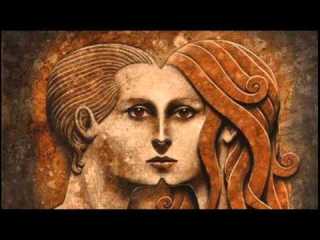Carl Jung on the Anima and Animus
Dr. Evans: To be more specific, Dr. Jung, you have used the concepts, anima and animus, which you are now identifying in terms of sex, male or female. I wonder if you could elaborate perhaps even more specifically on these terms? Take the term “anima” first. Is this again part of the inherited nature of the individual?
Dr. Jung: Well, this is a bit complicated, you know.
The anima is an archetypal form, expressing the fact that a man has a minority of feminine or female genes.
That is something that doesn’t appear or disappear in him, that is constantly present, and works as a female in a man.
As early as the 16th century, the Humanists had discovered that man had an anima, and that each man carried female within himself.
They said it; it is not a modem invention.
The same is the case with the animus.
It is a masculine image in a woman’s mind which is sometimes quite conscious, sometimes not quite conscious; but it is called into life the moment that woman meets a man who says the right things.
Then because he says it, it is all true and he is the fellow, no matter what he is.
Those are particularly well-founded archetypes, those two.
And you can lay hands on their bases. Carl Jung, Evans Conversations, Pages 16-18.

